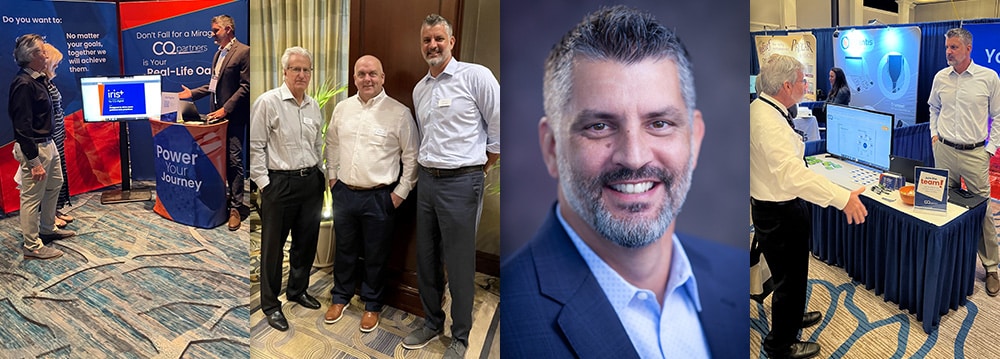
When hearing aid dispensing practices first open their doors, most of the responsibilities, including marketing the practice, fall on the owner. But as the practice grows, it becomes healthier for the practice, and the owner themselves, to hand off some responsibilities to other employees.
Ultimately your staff will become a key factor in driving your practice’s success. Excellent products, the latest equipment, and a great location are certainly important, but the depth, quality, work ethic, and attitude of your staff are paramount to the practice reaching its financial goals. It will also greatly impact the number of patients you’re able to help hear well again.
One of the biggest areas for growth in a private audiology and hearing aid practice is physician referrals. Studies show that over 60 percent of people rely on their primary care physician when it comes to choosing a hearing healthcare provider. So, it stands to reason that obtaining referrals from local physicians and through community outreach is essential to your practice’s growth.
A Practice Development Representative (PDR) can be an effective addition to your team to continually drive revenue and patients into your practice. However, like with any new employee, you must first plan effectively for how you’ll hire, train, manage, and compensate your future PDR.
Understanding Their Role
 So, what does a Practice Development Representative do exactly? The purpose of a PDR is to promote the services of the practice to all potential referring entities within your market to increase the number of patients entering your practice from those entities. Referring entities can include, but are not limited to, primary care physicians, otolaryngologists who do not currently dispense, large area employers, unions, senior housing, assisted living centers, and nursing homes.
So, what does a Practice Development Representative do exactly? The purpose of a PDR is to promote the services of the practice to all potential referring entities within your market to increase the number of patients entering your practice from those entities. Referring entities can include, but are not limited to, primary care physicians, otolaryngologists who do not currently dispense, large area employers, unions, senior housing, assisted living centers, and nursing homes.
Planning the Hire
 Prior to hiring any new employee, practice owners should work with their Account Manager and CQ Recruiter to create a proper job description. Understanding who you are seeking and exactly what you need them to accomplish is not only crucial for the interview process, but also to the new employee’s long-term satisfaction in the role. Define what your PDR will be held accountable to and how he/she will be compensated. For example, the number of daily visits, phone calls, contacts, appointments made (and kept), and the revenue expected from his/her efforts. Using this job description during the interview process is the best way to set clear expectations with potential hires on how their performance will be judged and how they will be compensated.
Prior to hiring any new employee, practice owners should work with their Account Manager and CQ Recruiter to create a proper job description. Understanding who you are seeking and exactly what you need them to accomplish is not only crucial for the interview process, but also to the new employee’s long-term satisfaction in the role. Define what your PDR will be held accountable to and how he/she will be compensated. For example, the number of daily visits, phone calls, contacts, appointments made (and kept), and the revenue expected from his/her efforts. Using this job description during the interview process is the best way to set clear expectations with potential hires on how their performance will be judged and how they will be compensated.
The Interview Process

During the interview process look for the specific characteristics and qualifications called for in your plan/job description. Here are some key attributes we have identified over the years in successful PDRs:
- Sales experience
- Motivated by success and financial reward
- Self-starter
- Accountable to numbers in their previous jobs
- Strong oral and writing skills
- Strong organizational skills
Find out why each candidate responded to your ad (“Why do you want to do this job?”). Ask how they have been managed in the past (was there a quota or specific numbers that needed to be met? If so, how successful were they at hitting those numbers?). Look for a motivated self-starter who was a significant contributor to his/her last employer. Ascertain what strengths the candidates can bring to the position. Ask them to discuss precise past experiences that are related to your needs, specifically their sales experience. Have them describe the ideal sales job and tell you about a career goal they met and why it was important to them. Additionally, ask candidates to describe their ability as a market developer (did they ever call on medical practices and if so, what were their results?). Ask them to tell you about the two most common objections they faced and how they overcame them. Lastly, make sure this is a person you feel comfortable making the face of your practice in your community.
Training
 Let’s assume the person you hire has all the basic skills to be successful in your practice. He/she still needs training that is specific to your practice, especially if he/she hasn’t previously worked in the medical field. Someone in your practice must be responsible for training your new PDR. Create a 30-day onboarding plan that outlines what will happen on each day and who is responsible to make sure it happens. This is another time when you can lean heavily on your Account Manager and/or CQ Partners Recruiter. Like many practice owners, you may be too busy seeing patients to handle training new hires. Nevertheless, the success of your PDR relies on how competently this part of the process is fulfilled. Again, there is no need for you to go this alone—CQ has more than 25 years of experience training employees and getting them up to speed quickly. So, lean on us!
Let’s assume the person you hire has all the basic skills to be successful in your practice. He/she still needs training that is specific to your practice, especially if he/she hasn’t previously worked in the medical field. Someone in your practice must be responsible for training your new PDR. Create a 30-day onboarding plan that outlines what will happen on each day and who is responsible to make sure it happens. This is another time when you can lean heavily on your Account Manager and/or CQ Partners Recruiter. Like many practice owners, you may be too busy seeing patients to handle training new hires. Nevertheless, the success of your PDR relies on how competently this part of the process is fulfilled. Again, there is no need for you to go this alone—CQ has more than 25 years of experience training employees and getting them up to speed quickly. So, lean on us!
Compensation
 Many compensation plans exist for PDRs. In formulating your plan, make sure it controls the cost of dispensing, motivates high performance, and allows for meaningful assessment (and reward) for growing your practice. Compensation plans typically include a base salary plus commission. Commission is usually paid on the profit margin of hearing aids after referrals or appointments generate a net profit that is some multiple of their salary. The right plan, along with the right candidate, will create a win-win situation for increasing revenue for your practice and the service being provided to your patients.
Many compensation plans exist for PDRs. In formulating your plan, make sure it controls the cost of dispensing, motivates high performance, and allows for meaningful assessment (and reward) for growing your practice. Compensation plans typically include a base salary plus commission. Commission is usually paid on the profit margin of hearing aids after referrals or appointments generate a net profit that is some multiple of their salary. The right plan, along with the right candidate, will create a win-win situation for increasing revenue for your practice and the service being provided to your patients.








